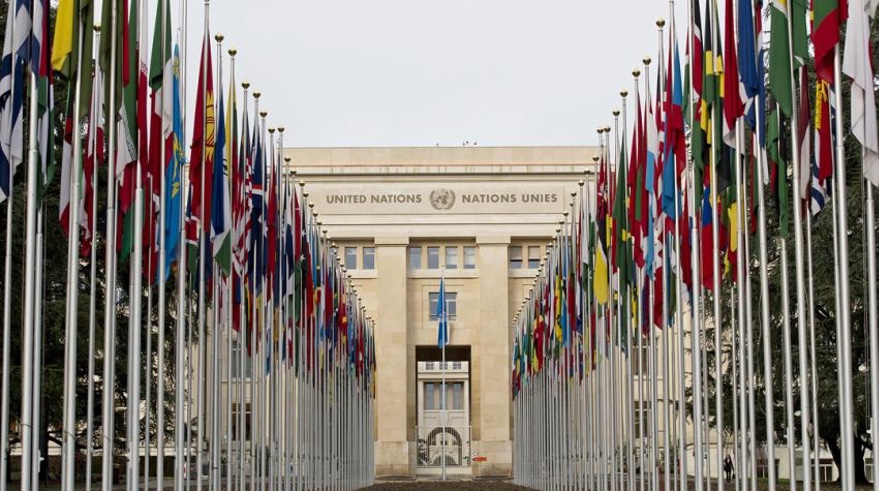WASHINGTON — The Canadian government announced May 9 that it is joining the United States in banning tests of destructive direct-ascent antisatellite weapons as a step toward norms of responsible behavior in space.
In a tweet, the Permanent Mission of Canada to the United Nations in Geneva announced that Canada would abide by the non-binding ban on such ASAT tests announced by Vice President Kamala Harris April 18. Such tests, Harris said at the time, create dangerous amounts of debris in orbit, and she called on other nations to join the United States in the ban.
“For 40 years [Canada] has advocated for a halt to anti-satellite (ASAT) tests. Today we joined the US pledge not to conduct destructive ASAT missile testing. We encourage all states to join so that together we can make this a global norm,” the Canadian government stated.
The move is largely symbolic. Canada has never developed or tested ASAT weapons and had announced no plans to do so. However, the announcement, coming at the start of a week of deliberations by a U.N.-chartered Open-Ended Working Group (OEWG) in Geneva on norms of behavior for reducing space threats, could help build momentum for broader support for the ban.
A State Department official said last month that the United States announced the ASAT testing ban now to “spur a meaningful discussion” at the meeting, the first of four scheduled over the next two years.
“Having our own proposal at the OEWG of a norm of responsible behavior will allow the United States to demonstrate our leadership in this area and to drive a conversation in a way that supports our position and doesn’t undermine U.S. and allied security in the face of what surely will be competing proposals,” said Eric Desautels, acting assistant deputy of state for arms control, verification and compliance, at an April 21 webinar.
The Canadian government didn’t elaborate on its acceptance of the ASAT testing ban, but a paper it filed as part of the working group discussions outlined its opposition to ASAT testing. “Canada views responsible behaviour as committing to not undertake development, testing and use of ASAT capabilities which can cause widespread debris,” the paper stated. “Indeed, Canada supports discussions, in the context of the Conference on Disarmament, on a possible ban on testing and use of ASATs which cause space debris.”
A lack of progress in the Conference on Disarmament for many years, including failing to approve an agenda of topics for discussion, led to efforts like this working group to develop non-binding “rules of the road” for safe space operations, which Canada said in its white paper it supported. “From Canada’s perspective, pragmatic, non-binding standards of responsible behaviours should be applied as soon as possible which, if accepted by a majority of space-faring nations, could become legally binding international law in the future.”
The Secure World Foundation, an organization devoted to space sustainability, welcomed Canada’s announcement. “As the world has seen, these tests can produce hundreds or even thousands of pieces of debris, which pose a threat to all operators in nearby orbits,” it said in a statement, asking “other countries to adopt a similar commitment, helping to cement this initiative into a global norm.”
Canada is the first to formally back the ASAT testing ban. Jessica West, a senior researcher on space security at Project Ploughshares who is attending the working group meeting, said May 9 that while no other nations have formally joined the ban, several countries expressed support for it at the meeting, including France, Germany, Ireland, South Korea and the United Kingdom.
